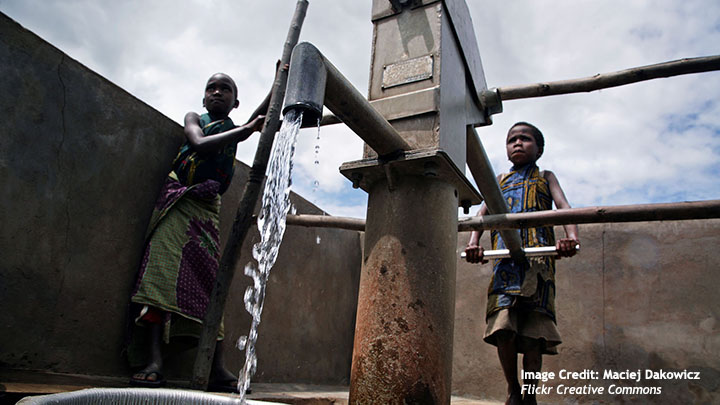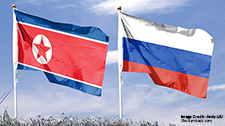Tracing Intersections of COVID-19: Gender, Water and Armed Conflicts

Alexandra Said, Panchali Saikia and Martina Klimes
Introduction
The current coronavirus pandemic (COVID-19) is having ramifications throughout the world, increasing human insecurity in fragile and conflict-affected states (FCAS). A combination of prolonged instability and weak institutions hampers the ability of FCAS to deliver basic healthcare and water, sanitation and hygiene services (WASH), and this is exacerbated during a crisis. Many FCAS also face existing and emerging environmental challenges, such as water scarcity, that place further strain on their efforts to deliver basic services to the population. This in turn increases the burden on women as the main water and care providers for households and communities. The inability, or in some cases unwillingness, of state actors to ensure the delivery of basic services creates opportunities for non-state actors to fill the void. This undermines the legitimacy of formal governments and provides armed nonstate actors (ANSA) with space to demonstrate their non-military roles in the communities that live under their de facto control. ANSAs with territorial or governance grievances can use nontraditional security threats such as the COVID-19 pandemic to strengthen their legitimacy in intrastate armed conflicts.
We argue that advancing women’s empowerment and financing women-led organizations present an opportunity to prevent ANSAs from using natural disasters or disease outbreaks such as the COVID-19 pandemic to increase their legitimacy by providing public healthcare and WASH services, while also ensuring that the gendered consequences of disease outbreaks are taken into account. In areas where state actors have little or no reach, women play a central role in emergency response, both at the household level as water providers and at the community level through women-led organizations. This limits the space for ANSAs to demonstrate their governance legitimacy through community service provision. Furthermore, studies by the Organization for Security and Cooperation in Europe (OSCE) and the United Nations Development Programme (UNDP) show that women are vital to preventing radicalization in their communities, and that women’s empowerment and gender equality are key to preventing an increase in violent extremism across the world.
Related Publications
-
Navigating BRI and Indo-Pacific Strategy: Challenge for South Asian Small States
This paper explores the intersection of China’s Belt and Road Initiative (BRI) and the Indo-Pacific Strategy (IPS) among South Asian Small States, analyzing the interplay between the two initiatives and […]
-
ISDP Annual Report 2023
ISDP’s Annual Report for the year 2023. We look back on 2023, a year in which tensions and conflicts captured the strategic space in ISDP’s focus areas, making headlines around […]
-
‘To increase the chances that peace will last, you need to have women involved’: An Interview with LENA SUNDH
With United Nations (UN) Peacekeeping marking its 75th anniversary in 2023, ISDP’s Clara Stäbler and Tove Jalmerud, interns of the Asia Program and the Stockholm China Center, sat down with […]
-
An Interview with Professor Torbjörn Lodén: EU and U.S. Relations with China in Retrospect and Looking Ahead
The Institute for Security & Development Policy (ISDP) has for the past three years had the honor and privilege of Professor Torbjörn Lodén serving as its Head of the Stockholm […]
-
What Comes Next for North Korea-Russia Relations?
North Korea and Russia have taken their relations to a new level after the leaders of the two countries held an in-person summit meeting on Wednesday. While Pyongyang and Moscow […]




